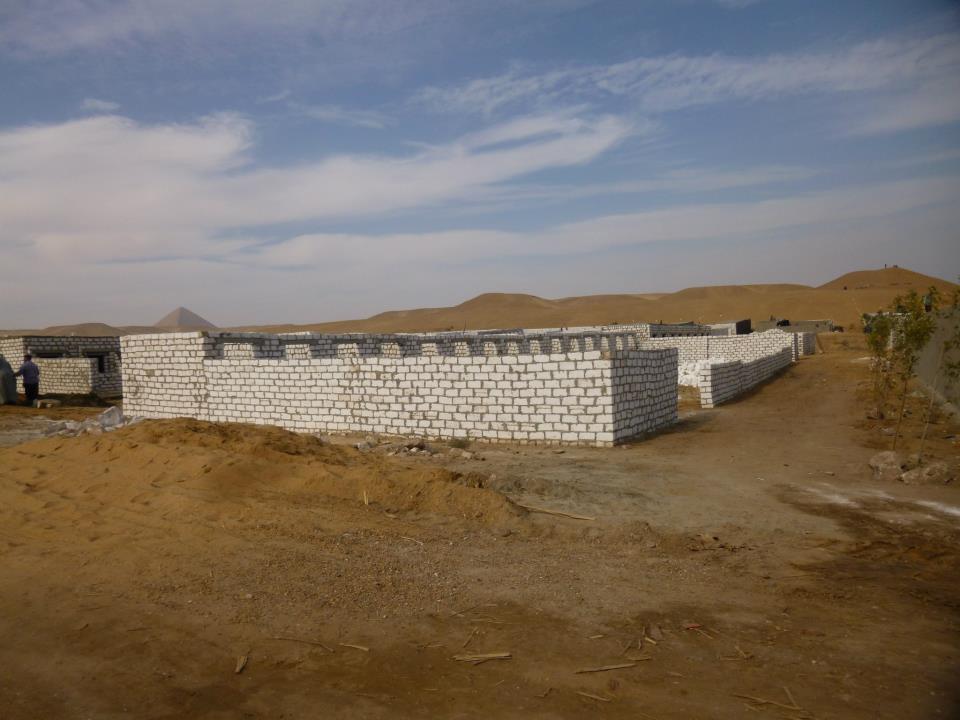CAIRO: As part of a national plan to “makeover Egypt so that the country can compete on a global scale and face the challenges bought on by globalization, the Egyptian government has returned its attention to the small and medium enterprise (SMEs) sector, representing a big chunk of the productivity of the Egyptian economy.
According to statistics from the Organization for Economic Cooperation and Development’s (OECD) African Economic Outlook 2004/2005 report, the Egyptian SME sector accounts for 75 percent of jobs, 80 percent of GDP and 99 percent of the non-agricultural private sector, but only 4 percent of exports.
Realizing the importance of developing the capacity of SMEs in order to join the formal economy and contribute to Egyptian exports, the government has launched a reformed tax law, reduced custom taxes and made establishing a business a simplified procedure, thanks to GAFI.
However, while SMEs have been showing up in greater numbers on the national radar, they are not quite as efficient as they should be due to one simple and often overlooked reason: lack of training.
Which is where the private arm of the World Bank, the International Finance Corporation’s (IFC) Business Edge program, comes in handy. Business Edge, the brand name for the IFC’s international range of management training products and services, especially designed for owners and managers of SMEs, is helping the Egyptian government and private sector tackle the issue of training.
“What has really struck me since I’ve been in Egypt is the fascination the country has for the technical and engineering process, says Michel Botzung, program manager of Business Edge, to The Daily Star Egypt. “What people are not paying attention to is the managerial dimension; managing a team, making decisions and so forth.
According to Botzung, while the government needs to concentrate more of its efforts outside of the greater Cairo area, in places such as Assiut and Mansoura in the Delta region where people cannot afford to travel to receive training, the crux of the problem lies in people’s mindset.
“Most SME owners and managers think that training will not have an impact on their bottom lines. They think it’s more important to invest their sometimes limited resources on tangible items, such as equipment, explains Botzung.
Yet nothing could be farther from the truth, according to Botzung. “Training can have a direct effect on the bottom line. If we were to just look at our customers as an indication, most of those who attend our seminars become frequent customers. While this is subjective, it is also a good indicator, he adds.
The government is well aware that SMEs lack the managerial skills needed to operate at full capacity.
At this year’s Egyptian Junior Business Association’s annual conference, Minister of Foreign Trade and Industry Rachid Mohamed Rachid addressed the issue of training, stating that the biggest challenge facing the government in terms of SMEs thus far is training the workforce and managers, and providing them with effective managerial skills, according to Botzung, who attended the workshop with the program.
To tackle this issue, the government has highly subsidized the cost of training, simultaneously working with donor-funded organizations such as the EU’s Industrial Modernization Center (IMC) and programs such as the IFC’s Business Edge to develop and raise the level of training available in the country.
“Changing the mindset of the people, convincing managers and SME owners that training is imperative to their overall efficiency, is one facet of the problem, says Botzung. “Training agencies in Egypt lack the practical experience needed to train SMEs. They also do not have the resources necessary to develop localized training material that people can relate to and learn from, because this requires time, lots of networking and money.
While the training content in itself is quite good, it is often ineffective because the content is not localized.
“The issue is that often the content is purely international, with the trainers using case studies from American and European success stories, says Botzung. “For multinationals such as GSK, for example, that’s usually not a big deal, but for SMEs it doesn’t work because people cannot relate and learn from such examples.
Business Edge has been making a difference when it comes to training content. The program has allocated more than $300,000 to purchase and localize the content, working with professors from the American University in Cairo and local consultants. To this end, the program is doing its part in turning the training into a relevant experience for their customers, indirectly aiding in removing the main constraints that hinder the operations of the SME sector and prevent it from joining the formal economy.
Since its launch in October 2004, the program has encompassed 11 training partners in Egypt, through whom it has trained 2,522 Egyptians, assisting the training centers in Egypt to develop on par with their international counterparts.
To reach a greater audience, Business Edge has organized open seminars with the support of numerous business associations, whereby attendees get a brief, “light training session on one of 36 topics in five different fields, namely: marketing, human resources, production and operations, finance and accounting and productivity skills.
“When people are convinced, when they see it’s practical, they come back for more, says Botzung.
One such customer is Mobinil. In June 2005, Mobinil signed an agreement with Business Edge to provide training for MobiNil distributors and suppliers.
“There is tremendous potential to tap SMEs through large corporations, as they work with thousands of suppliers and outlets, explains Botzung.
Through seminars in six cities across Egypt, Business Edge is training 300 owners and managers of small and medium-sized MobiNil points-of-sale to help them expand their businesses. A project is also in the works to develop a training program for Microsoft Egypt and Unilever.
“I have a feeling things will change for the better because the government and donor agencies are investing more money to encourage training, adds Botzung.



